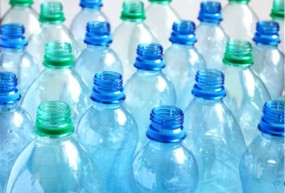Comments are closed.
- Fitness (19)
- News & Reviews (25)
- Nutrition (20)
- Science (10)
- Supplements (6)
- Technologies (8)
- The Arts (9)
 From All Things Considered by John Hamilton: Most plastic products, from sippy cups to food wraps, can release chemicals that act like the sex hormone estrogen, according to a study in Environmental Health Perspectives.
From All Things Considered by John Hamilton: Most plastic products, from sippy cups to food wraps, can release chemicals that act like the sex hormone estrogen, according to a study in Environmental Health Perspectives.
(R)esearchers bought more than 450 plastic items from stores including Walmart and Whole Foods. They chose products designed to come in contact with food — things like baby bottles, deli packaging and flexible bags, says George Bittner, one of the study’s authors and a professor of biology at the University of Texas, Austin.
Then CertiChem, a testing company founded by Bittner, chopped up pieces of each product and soaked them in either saltwater or alcohol to see what came out. The testing showed that more than 70 percent of the products released chemicals that acted like estrogen. And that was before they exposed the stuff to real-world conditions: simulated sunlight, dishwashing and microwaving, Bittner says.
“Then you greatly increase the probability that you’re going to get chemicals having estrogenic activity released,” he says, adding that more than 95 percent of the products tested positive after undergoing this sort of stress.
But what about all those products marketed as BPA-free? That’s a claim being made for everything from dog bowls to bento boxes these days. The team concentrated on BPA-free baby bottles and water bottles, Bittner says, “and all of them released chemicals having estrogenic activity.” Sometimes the BPA-free products had even more activity than products known to contain BPA.
The testing didn’t show which chemicals are to blame, which is likely to be frustrating to manufacturers. But Bittner says consumers should be encouraged that at least some plastic products had no estrogen-like activity. He says that shows it is possible to make these products.
Until scientists come up with more definitive answers, worried consumers can follow the old advice to avoid putting baby bottles and other plastic products in dishwashers or microwaves.
“We’ve long cautioned consumers to avoid extreme heat and cooling for plastics, to discard scratched and worn plastics and we feel like this [study] validates one of our many concerns”…
Filed under News & Reviews | Comments Off on The Trouble With PlasticsComments are closed.